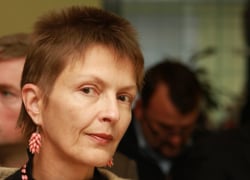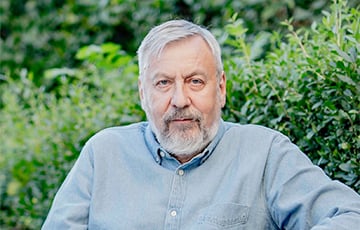Maryna Adamovich: New political prisoners may appear
4- 27.02.2015, 11:00
- 14,041

The authorities try the West's patience.
Maryna Adamovich, the wife of political prisoner Mikalai Statkevich, spoke to Radio Svaboda about the sentence to Mikalai Dziadok.
“I was impressed with the sentence, though I expected it. The last straw is three days of his old term that were added to the new term. Cynicism and meanness have no bounds. It takes place during a visit of EU officials who are looking for a black cat in a dark room. But there's no black cat. We have liberalism and better relations. This is another stake in the game. The authorities try our and our neighbours' patience. They want to see what we can tolerate. They play with human lives. It is disgusting. I sympathises with Mikalai's family. I am sure that he is strong. The authorities press on strong people to stifle their will, aspirations for justice, their honour and dignity.
If they [EU officials] continue to pay visits, accept flowers and wave their hands, we will see new political prisoners. We can expect this situation. Our authorities always defeat spineless European partners,” she said.
Mikalai Dziadok was tried on February 25 and 26 in the Mahilou prison. He was charged with violating prison rules for 16 times. His main offence was that he put on a tracksuit instead of a prison uniform.
Ihar Shvedau, a judge of Mahilou's Leninski district court, sentenced the political prisoner to one more year of imprisonment for violating article 411 of the Criminal Code. The political prisoner will serve the remaining three days of his first term before serving the new sentence.
Human rights defenders note that harassment of opposition members, journalist and small businessmen has increased in the last months. New political prisoners have appeared, the number of preventive arrests of activists has grown, a number of new repressive laws have been adopted, independent websites have been blocked, pressure on small business has increased. Experts explain it with the fact that many EU officials close their eyes to human rights violations in Belarus and try to establish a “dialogue” with the dictator.










